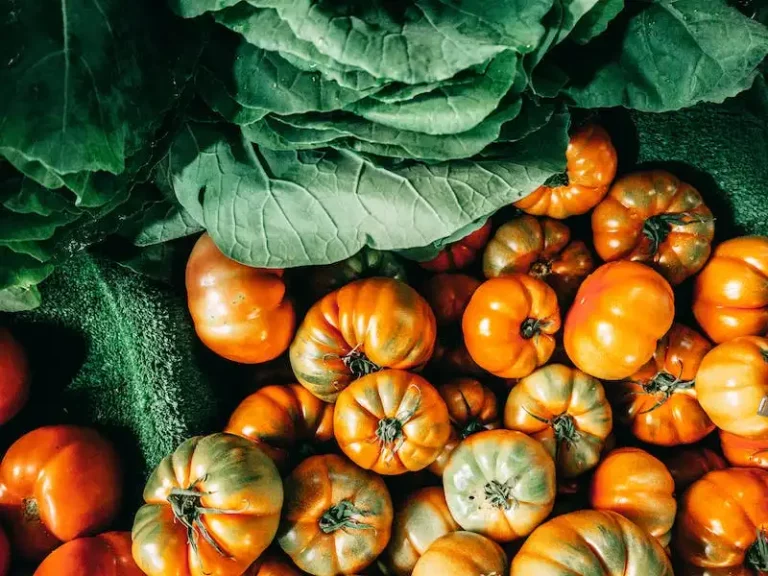If you have a long, list of honeysuckle varieties in your garden, you might consider taking cuttings to propagate new plants. Although honeysuckles can be invasive, they are beautiful and fragrant additions to any garden. In this article, I will tell you the steps on how to take cuttings from honeysuckle.
Step 1: Begin by looking for a honeysuckle plant that you want to propagate. Make sure it is healthy and free from pests or diseases. Take cuttings from the stems that are at least 6 inches long, although longer cuttings will have a higher success rate.
Step 2: Prepare a planting container by filling it with a well-draining potting mix. Make sure the container has drainage holes at the bottom to prevent waterlogging. If you’re looking to propagate Japanese honeysuckle (Lonicera japonica), be aware that it is an invasive species in many areas, so consider planting it in a rock garden or a container to prevent spreading.
Step 3: Wet the bottom 1 inch of the cuttings and dip them in rooting hormone powder to promote root growth. Make a small nick about half an inch above the bottom of each cutting to encourage root development. You can use a sharp knife or pruners for this task.
Step 4: Insert the cuttings into the prepared potting mix, making sure at least two leaf nodes are below the surface. Firmly press the soil around the base of each cutting to ensure good contact with the roots. If you’re propagating more than one honeysuckle variety, make sure to label your cuttings to avoid confusion.
Step 5: Place the container in a warm and bright location, but avoid direct sunlight. Keep the soil slightly moist but not waterlogged. Mist the cuttings with water regularly to maintain humidity. It may take several weeks for the cuttings to develop roots.
Step 6: Once the cuttings have rooted, you can carefully separate them and plant each one in its own container or in the desired location in your garden. Make sure to provide them with regular watering and care as they establish themselves.
Taking cuttings from honeysuckle is an easy and effective way to propagate new plants. By following these steps, you can increase your honeysuckle collection or share them with friends and fellow gardening enthusiasts. Enjoy the beauty and fragrance of honeysuckle in your garden!
Sharing Honeysuckle Vine
In gardening, propagating honeysuckle vines is an easy task that can lead to more healthy plants. The first step is to prepare your cuttings. You’ll need to start by taking 3-4 inch long cuttings from a healthy mother plant. Make sure the cuttings are taken from new growth and not older wood. You can also nick the base of the cutting to increase the chances of rooting.
Next, you’ll need to prepare a container for planting the cuttings. Most gardeners prefer to use a deep potting container to allow for the growth of the root system. Make sure the container has drainage holes to prevent excess moisture.
Before planting the cuttings, it’s important to prepare the soil. You can use a mix of potting soil with some sand or perlite to improve drainage. Moisten the soil before planting the cuttings.
When planting the cuttings, make a hole in the soil and gently insert the cutting. Make sure the soil comes into contact with the stem. You can plant multiple cuttings in the same container, but make sure they’re spaced apart to allow for proper growth.
After planting, water the cuttings and place the container in an area with indirect sunlight. The cuttings should be kept moist but not overly wet.
Aftercare is important for the success of your cuttings. Make sure to continue watering the plants regularly and provide them with nutrients as needed. As the cuttings root and grow, you can start to separate them into individual containers or transplant them into the garden.
Honeysuckle vines are known to be invasive in some states, so make sure to check with your local gardening authorities before propagating them.
By following these steps, you can easily share your honeysuckle vine with others and enjoy the beauty and fragrance it brings to your garden.
How to take cuttings from honeysuckle
If you’re looking to propagate honeysuckle plants, taking cuttings is a great way to expand your garden. By following a few simple steps, you can ensure the success of your plant propagation.
Step 1: Take cuttings from the mother plant. Choose a healthy honeysuckle vine and look for a pair of leaves towards the top. Using a sharp pair of scissors or pruning shears, cut the stem just above the pair of leaves.
Step 2: Prepare the cuttings. Make sure your cuttings are at least 3 to 4 inches long, keeping in mind that longer cuttings will take longer to root. Remove the lower pair of leaves, leaving only the top pair. This will increase the chances of successful root formation.
Step 3: Propagate the cuttings. Fill a small pot with a mixture of equal parts peat moss and perlite, ensuring good drainage. Moisten the soil and make a hole with a pencil or finger. Dip the bottom of the cutting in rooting hormone powder to encourage root development, then place the cutting in the hole and gently firm the soil around it.
Step 4: Provide the right conditions for growth. Place the potted cutting in a warm and bright location, but not in direct sunlight. Maintain consistent moisture levels by watering whenever the top inch of soil feels dry. Mist the cutting daily to increase humidity, which will help in root formation.
Step 5: Continue care. Monitor the progress of your cuttings and remove any dead or diseased leaves. Once the roots have developed, usually within 2 to 3 weeks, you can replant the honeysuckle in a larger pot or directly in the garden. Make sure it receives ample sunlight and water regularly.
By following these steps, you can successfully propagate honeysuckle plants and have a beautiful garden filled with these lovely vines. Happy gardening!
The Garden of Eaden
Honeysuckle is a popular and easy-to-grow vine that adds beauty and fragrance to any garden. If you’re looking to expand your honeysuckle collection or share your plants with friends and family, propagation through cuttings is a quick and convenient method.
To begin propagating honeysuckle from cuttings, follow these easy steps:
1. Choose a healthy honeysuckle plant: Look for a vigorous plant that’s at least 3 years old and free from any diseases or pests. Japanese honeysuckle (Lonicera japonica) is a great choice for propagation.
2. Prepare the cutting: Using a sharp, clean pair of pruning shears, cut a 4-6 inch long, semi-ripe stem from the honeysuckle. Semi-ripe wood is flexible but not too soft or too hard.
3. Remove the lower leaves: Strip the leaves from the lower 2 inches of the cutting, leaving only a few leaves at the top.
4. Dip the cutting in rooting hormone (optional): Although not necessary, dipping the cut end of the honeysuckle cutting in rooting hormone can help promote root development.
5. Plant the cutting: Fill a small pot with well-draining potting soil and make a hole using a pencil or your finger. Insert the cutting into the hole, ensuring that at least one node (where the leaf meets the stem) is below the soil surface.
6. Water and provide aftercare: Water the newly planted cutting thoroughly and place it in a location that receives bright, indirect light. Keep the soil consistently moist but not waterlogged. Provide regular misting to increase humidity and prevent dehydration.
7. Wait for roots to grow: It usually takes about 6-8 weeks for the cuttings to develop roots. Check for root growth by gently tugging on the cutting. If you feel resistance, roots have started to form.
8. Transplant the rooted cutting: Once the cutting has developed a healthy root system, it can be transplanted into a larger pot or directly into the garden. Choose a sunny location with well-draining soil for planting.
By following these steps, you can easily propagate honeysuckle from cuttings and expand your garden with new plants. Happy gardening!
How to Propagate Honeysuckle
Propagating honeysuckle is a simple and easy task that anyone can do. There are two main methods of propagation: using cuttings or layering. Both methods involve taking a piece of the plant and encouraging it to grow roots, which can then be separated to create a new plant.
Propagation by Cuttings:
- Choose a healthy honeysuckle vine and look for a flexible, new growth.
- Cut a foot-long stem from the plant, making sure to include at least one set of leaves.
- Remove the leaves from the lower half of the stem, leaving only a few on the top.
- Make a small nick just above one of the leaf nodes.
- Prepare a pot with well-draining soil and insert the cutting about 2-3 inches deep.
- Water the cutting thoroughly and place a plastic bag over the pot to create a humid environment.
- Place the pot in a warm and bright location, but avoid direct sunlight.
- Check the cutting regularly for signs of rooting, such as the growth of new leaves or shoots.
- After a few weeks, gently tug on the cutting to see if it has rooted. If it resists, it has likely developed roots. If not, continue to wait.
- Once rooted, carefully separate the new plant from the mother plant and pot it up individually.
- Provide proper aftercare for the newly potted plant, including regular watering and fertilizing.
Propagation by Layering:
- Choose a healthy, mature honeysuckle vine.
By following these steps, you can propagate honeysuckle and increase your collection of these beautiful and fragrant vines. Whether you choose to use the cutting or layering method, with a little patience and care, you can successfully grow new honeysuckle plants.
Source: gardeningknowhow.com
Propagating Honeysuckle by Layering
One easy and effective way to propagate honeysuckle is through the method of layering. Layering is a technique in which a new plant is grown while still connected to the mother plant, allowing it to gain nutrients and support until it is ready to be separated and planted on its own.
To propagate honeysuckle by layering, follow these simple steps:
- Find a healthy and vigorous honeysuckle vine in your garden that you wish to propagate.
- Choose a spot on the vine where you want to start the propagation. This spot should preferably be near the base of the vine.
- Carefully bend the selected vine down to the ground, making sure it is in contact with the soil.
- Create a small trench in the soil below the vine using a garden tool or your hands.
- Gently scrape the bark on the underside of the vine, creating a small wound or nick.
- Place the wounded part of the vine into the trench, making sure it is in direct contact with the soil.
- Cover the wounded part of the vine with soil, leaving the tip of the vine above ground.
- Water the newly planted vine thoroughly, making sure the soil is moist but not waterlogged.
- Keep an eye on the layered vine and water it regularly to maintain the necessary level of moisture.
- After several months, check the layered vine for root growth. You can gently dig around the base of the vine to see if roots have formed.
- Once the layered vine has established a strong root system, you can separate it from the mother plant and transplant it to its desired location.
Propagating honeysuckle by layering is a reliable method that often results in successful new plants. It is important to choose a healthy mother plant and provide proper care and aftercare for the layered vine to ensure its success.
With these simple steps, you can easily propagate honeysuckle and enjoy the beautiful growth of this charming vine in your garden.



